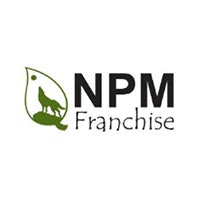Sales Compliance Training
Described below are 9 typical steps a franchisor should follow in the franchise disclosure and sale process under Federal Franchise Law (the Federal Trade Commission Franchise Rule). This is a basic summary and does not thoroughly cover all legal requirements. These steps may vary based on applicable state franchise laws. Also, the disclosure steps may be different for special situations as described in notes below. Therefore, legal advice is always recommended on a case-by-case basis.
Typical Steps for the Franchise Sales Process
Step #1 – Have Compliant FDD:
The franchisor should have a properly updated and legally compliant Franchise Disclosure Document (“FDD”).
Step #2 – Have Valid Franchise Registrations:
The franchisor should have applicable state franchise registrations and exemption filings.
Step #3 – Give Notice of Available Formats:
Before delivering the FDD to a prospective franchisee, the franchisor should advise the prospective franchisee of the format(s) in which the disclosure document is made available (such as hard copy, internet download, CD-ROM or email attachment). The franchisor should also advise the prospective franchisee of any prerequisites for obtaining or reviewing the disclosure in a particular format (such as required computer memory and software).
Step #4 – List Franchise Sellers:
The franchisor should list “Franchise Sellers” on the Receipt page found at the end of the Franchise Disclosure Document. The term “Franchise Sellers” has a specific legal definition with which franchisors should become familiar.
Step #5 – Deliver FDD:
The franchisor should deliver the FDD to the prospective franchisee.
Potential Advantages of Electronic Disclosure:
- The franchise disclosure process is easier and less expensive.
- The relevant disclosure document delivery waiting period begins sooner. This speeds up the sales process.
Potential Advantages of In-Person Delivery of Disclosure Documents:
- In-person delivery of the disclosure documents may allow you to learn who your prospect really is, explain your documents, reduce concerns, resolve questions and objections, and build a relationship of confidence and trust.
The franchisor should comply with disclosure waiting periods prescribed by state and federal laws. In most states, this waiting period is 14 calendar days before the prospective franchisee signs contracts or pays money. In addition, if the franchisor unilaterally and materially alters the terms and conditions of its standard franchise agreement, then the franchisor must give the prospective franchisee a copy of the revised agreement(s) at least 7 calendar days before the prospect signs the agreement or pays the franchisor any money. State laws often impose additional requirements that must be considered on a case-by-case basis.
Step #6 – Receive Signed Receipt:
The franchisor should receive the signed Receipt from the prospective franchisee. This helps confirm the franchisor’s compliance with relevant waiting periods required by law.
Step #7 – Re-Disclose if Needed:
If a “material” change occurs to information disclosed in the franchisor’s FDD, then the franchisor may be required to revise the FDD and deliver the revised disclosure document to the prospect. Depending on the state, the franchisor may need to amend its applicable state franchise registration(s) before re-disclosure and before closing the franchise sale.
Step #8 – Perform Compliance Audit:
It usually makes sense for franchise legal counsel to conduct a legal compliance analysis before a prospective franchisee pays any money or signs any contracts.
Step #9 – Sign the Franchise Agreement:
The sales process does not end until both parties sign the Franchise Agreement. The franchisor should usually involve franchise legal counsel in the preparation (and negotiation, if applicable) of franchise contracts.
* * * * *
Notes:
- Financial Performance Representations: Throughout the franchise offer and sale process, franchisors must comply with franchise legal requirements related to Financial Performance Representations. These rules are very specific and help avoid misrepresentations.
- Special Situations: The disclosure steps may be different for special situations, depending on relevant state and federal laws, including the following situations:
- renewal or extension of a franchise agreement;
- modification of an existing franchise agreement;
- sale of an additional franchise to an existing franchisee;
- sale of an existing franchise outlet to a new owner;
- sale of an existing franchisor-owned (or affiliate-owned) outlet to a new owner; and
- sale of a non-U.S. outlet.






